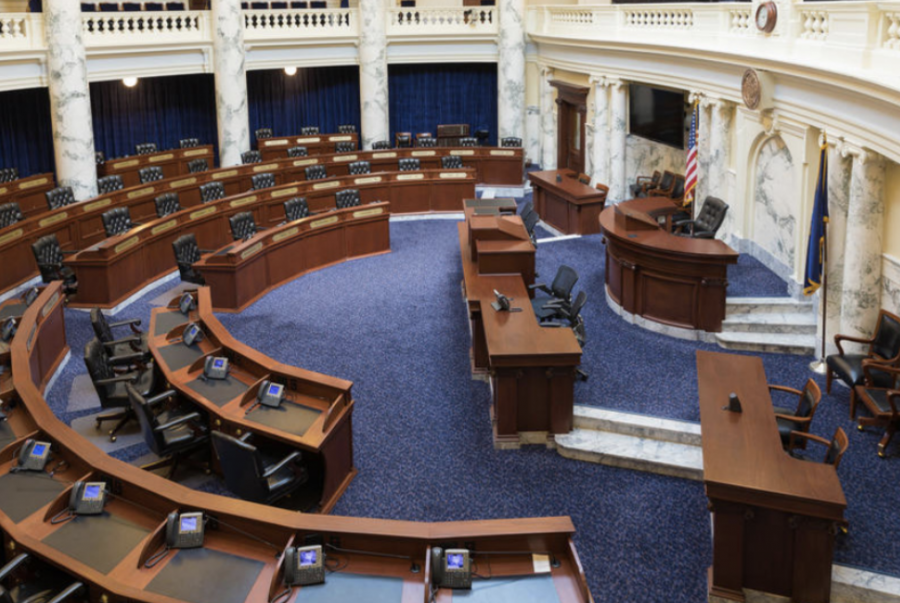Joe Biden’s America: Democrat House and Senate control
TIE BREAKER: Democrats have obtained a slim majority in the Senate following the Georgia runoffs.
February 12, 2021
Following the rollercoaster that was the 2020 presidential election, the Georgia runoffs will go down as one of the most consequential elections of the decade. It seemed as though everything was at stake, as millions of Americans held their breath to witness what would reshape the course of the political sphere for years to come. In order to control the Senate, Democrats needed to win both runoff elections: a virtually impossible task that they successfully accomplished, handing Vice President Kamala Harris the tiebreaker role in the Senate and giving President Biden power to move his policy agenda forward.
Although this victory marked the start of a brighter and more progressive American future, Biden’s policy agenda is still worth dissecting. Here is our take on some of his most happening policy.
1. Racial Inequality
One of the most prominent political discussions in 2020 surrounded the discrimination and brutal abuse of BIPOC communities by police forces, which sparked hundreds of protests around the nation.
In the past, Biden has made questionable decisions pertaining to criminal justice such as his controversial 1990s “tough-on-crime” stance. But he has since rescinded these statements and recognized that racism continues to be a prevalent issue in the United States, proposing a 20-billion-dollar grant initiative to increase states’ investment in efforts to reduce incarceration and address racial inequality. He has also proposed that fixing these issues requires social and economic efforts such as his 30-billion-dollar “build back” program which supports small minority businesses.
According to the Center for American Progress, these policies are a huge step forward from the previous administration’s more than 31 anti-reform actions, including failing to report deaths in police custody, halting assistance of police departments who were pro-reform, encouraging the use of excessive force in Black Lives Matter protests, reinstating Department of Justice contracts and many more.
Although his plans are satisfactory, Biden’s stance on defunding the police is still a bit concerning, considering the horrifying events that took place last year as a result of cruel, violent policing. In an interview with CBS News, Biden was quoted saying, “I support conditioning federal aid to police, based on whether or not they meet certain basic standards of decency.” Even with proposed body-worn cameras and conditional hiring, it’s difficult to believe that these will make enough of a difference when so many instances of blatant abuse were videotaped this year and so few officers were held accountable.
2. COVID-19
From disbanding the White House pandemic response team two years prior to the COVID-19 crisis to continuously downplaying the severity and seriousness of the novel coronavirus, the Trump administration exacerbated the virus that has now claimed 425,000 American lives.
Prior to his inauguration, Biden unveiled a $1.9 trillion COVID-19 relief plan that he dubbed the “American Rescue Plan.” He plans to spend a trillion on stimulus checks, food, childcare and utility assistance with the rest of the funds delegated to areas such as first responders, vaccine research and manufacturing, grants for small businesses and the safe reopening of schools. Because he believes that economic improvements are dependent on pandemic recovery, Biden plans to pay the hefty sum of the plan with borrowed money, adding to the trillions of dollars that the U.S. government already owes. However, this may result in a quicker resolution to the virus that is worth the price. By investing tens of billions of dollars into both vaccine programs and testing, Biden can quicken the distribution of vaccines across the United States.
3. Deferred Action for Childhood Arrivals (DACA)
The endeavor to end DACA is one of the many blights of Trump’s presidency. In September 2017, Trump vowed to destroy what he proclaimed to be an “illegal executive amnesty.” Multiple legal challenges throughout the next three years saw the courts undergoing an endless debate about whether or not the program should continue, prohibiting DACA holders from becoming citizens. Eventually, however, it became clear that not one of these court rulings ended in favor of the Republicans.
In one of his first acts as president, Biden sent an executive bill to Congress calling for the protection and fortification of the DACA program. Additionally, he urged that Dreamers should be able to immediately become permanent residents and have access to citizenship after three years of living in the states.
Currently, there is still a large battle in Texas concerning the legality of DACA filed by Texas and several other states, and the result of this trial will come out in the near future. DACA is essential for the livelihoods of hundreds of thousands of unauthorized immigrants, whether the purpose may be to take up an internship or to continue higher education.
It is important to recognize that politicians are politicians, and to idolize or blindly accept a leader for their decisions is what leads to the sort of fanatic support that plagued our nation during Trump’s presidency. Regardless of the alleviating outcome of the election, worldly problems have not vanished with a new president, so it is paramount that we continue fighting for what we believe in.



![AAAAAND ANOTHER THING: [CENSORED] [REDACTED] [BABY SCREAMING] [SIRENS] [SILENCE].](https://thehowleronline.org/wp-content/uploads/2025/06/lucy-1200x800.jpg)


















































![AAAAAND ANOTHER THING: [CENSORED] [REDACTED] [BABY SCREAMING] [SIRENS] [SILENCE].](https://thehowleronline.org/wp-content/uploads/2025/06/lucy-300x200.jpg)



